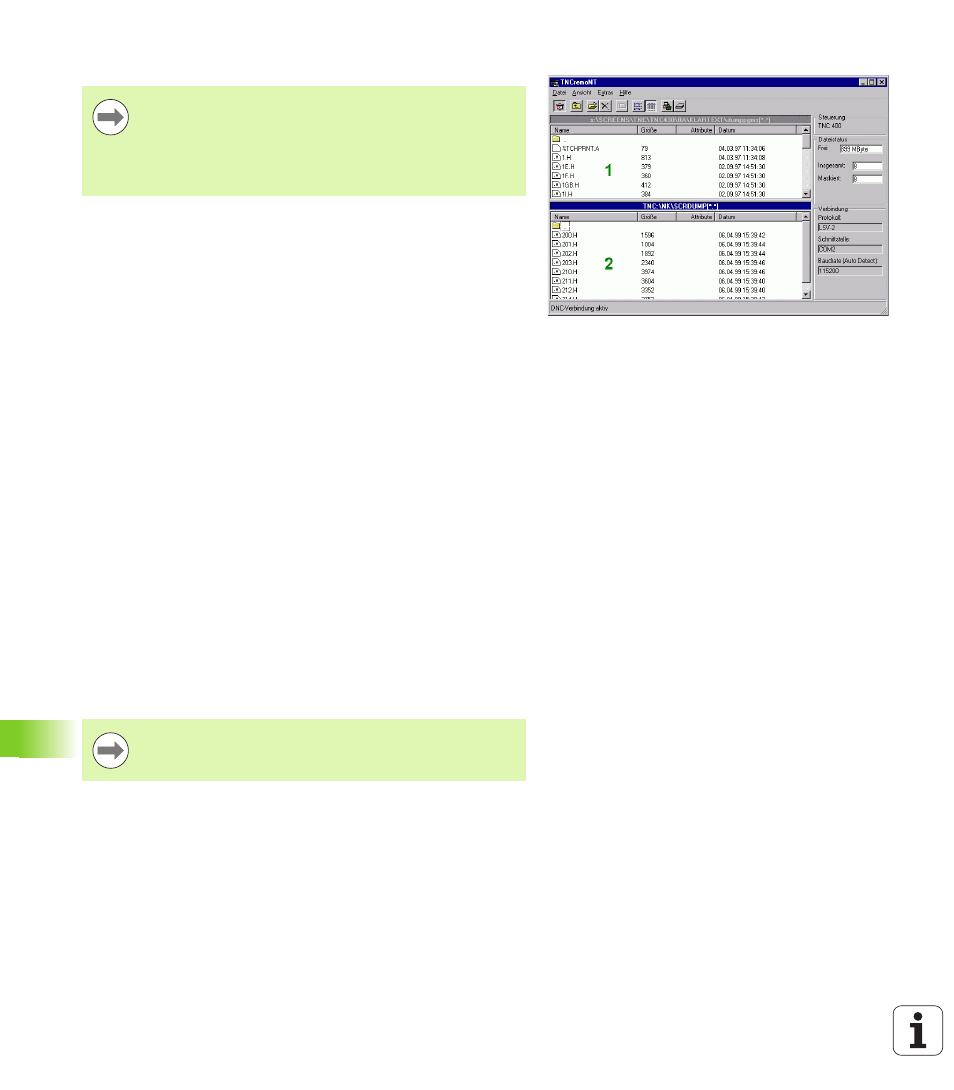5 set ting the d a ta int e rf aces – HEIDENHAIN 530 (340 49x-07) ISO programming User Manual
Page 558

558
MOD Functions
1
7.5 Set
ting the D
a
ta Int
e
rf
aces
Data transfer between the TNC and TNCremoNT
Check whether the TNC is connected to the correct serial port on your
PC or to the network.
Once you have started TNCremoNT, you will see a list of all files that
are stored in the active directory in the upper section of the main
window
1
. Using the menu items <File> and <Change directory>, you
can change the active directory or select another directory on your PC.
If you want to control data transfer from the PC, establish the
connection with your PC in the following manner:
U
Select <File>, <Setup connection>. TNCremoNT now receives the
file and directory structure from the TNC and displays this at the
bottom left of the main window
2
U
To transfer a file from the TNC to the PC, select the file in the TNC
window with a mouse click and drag and drop the highlighted file
into the PC window
1
U
To transfer a file from the PC to the TNC, select the file in the PC
window with a mouse click and drag and drop the highlighted file
into the TNC window
2
If you want to control data transfer from the TNC, establish the
connection with your PC in the following manner:
U
Select <Extras>, <TNCserver>. TNCremoNT is now in server mode.
It can receive data from the TNC and send data to the TNC
U
You can now call the file management functions on the TNC by
pressing the PGM MGT key (see “Data transfer to or from an
external data medium” on page 139) and transfer the desired files
Exiting TNCremoNT
Select the menu items <File>, <Exit>
Before you transfer a program from the TNC to the PC,
you must make absolutely sure that you have already
saved the program currently selected on the TNC. The
TNC saves changes automatically when you switch the
mode of operation on the TNC, or when you select the file
manager via the PGM MGT key.
Refer also to the TNCremoNT context-sensitive help texts
where all of the functions are explained in more detail. The
help texts must be called with the F1 key.